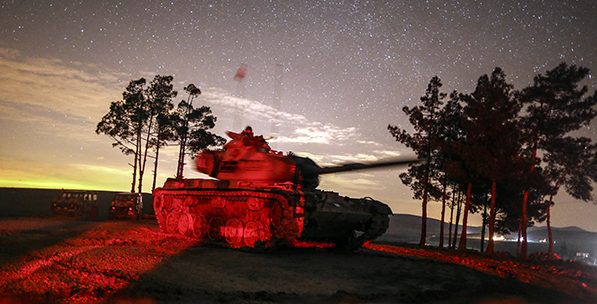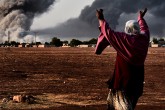Both Turkish and international media outlets have discussed the operation thoroughly; therefore, it is needless to go back to the details here. Yet if one analyze this operation carefully, one may draw some conclusions about the basic principles and orientation of Turkish foreign policy in recent times.
First of all, Operation Şah-Fırat demonstrates that Turkey follows a risk-free policy in the Middle East. For Ankara, it was too risky to leave the Süleyman Shah Garrison in its old location, which was far away from the Turkish-Syrian border, under siege by ISIS, and a most likely scene of serious clashes among all the actors of the Syrian civil war – ISIS and the Democratic Union Party (PYD) in particular. Any possible attack against this station would have pulled Turkey into the civil war in Syria and such a risk cannot be underestimated. If one considers provocative actions of ISIS in Iraq and Syria no one can deny that consequences would have been grave if ISIS had attacked the Tomb of Süleyman Shah, the symbolic meaning of which is quite important for Turkey. In such an attack, Turkey would have directly faced ISIS as ISIS would damage the tomb, capture or martyr the Turkish military guards. Previously, ISIShad attacked Turkish General Consulate in Mosul and taken hostage the Consul General and civilians along with many employees at the consulate. If one remembers the tension that had occurred in the aftermath of this attack and the relevant criticisms against the government, it was logical for Turkey to avoid any risks involving the Tomb of Süleyman Shah. Therefore, Ankara has demonstrated its unwillingness to follow an adventurous foreign policy in the Middle East.
A STEP FOR THE FUTURE
The relocation of the Tomb and the Garrison by Turkey to an area closer to the border through this operation also shows that Ankara is well aware of the limits of its military and economic capacity and followed a policy accordingly. As it has been claimed by some critics of the evacuation, not changing the location of the Tomb and the Garrison, and a military retaliation in case of possible ISIS attacks would have caused Turkey to become part of a long military conflict.. Previously Turkey was criticized for too much involvement in Syria and that it was courting with this war unduly. This time, however, it is noted that, on one side, the government is criticized for not defending the Tomb of Süleyman Shah in the old location although described as “a piece of motherland,” but on the other hand, the government again is accused of following interventionist policies towards Syria.
It is common in other countries that opposition parties and the mainstream media outlets in support of opposition criticize foreign policies of governments as much as domestic policies, and such criticisms may be in opposite directions. However, in countries, where the culture of democracy is well-settled, doses of similar criticisms are in sensible proportions and never reach a level to harm national interests. Conversely, it is often the case that criticisms of foreign policy in Turkey aim to harm and remove the government from power at all costs, because the tradition of power change through democratic means has not yet entirely settled in our country.
If the government had acted in accordance with the criticisms voiced by only one wing of the opposition, Turkey would have totally remained silent towards Syria and the massacres of the Bashar al Asad administration. On the other hand, if the government had followed a policy to please the other wing of the opposition, Turkey would have been directly involved in the Syrian civil war in case of a possible attack against the Tomb of Süleyman Shah. However, the policy Ankara followed was based on not remaining indifferent towards the developments in Syria which is already in a tremendous chaos, and preventing through indirect interventions Syria from harming the interests of Turkey without being a part of the Syrian conflict. While doin



